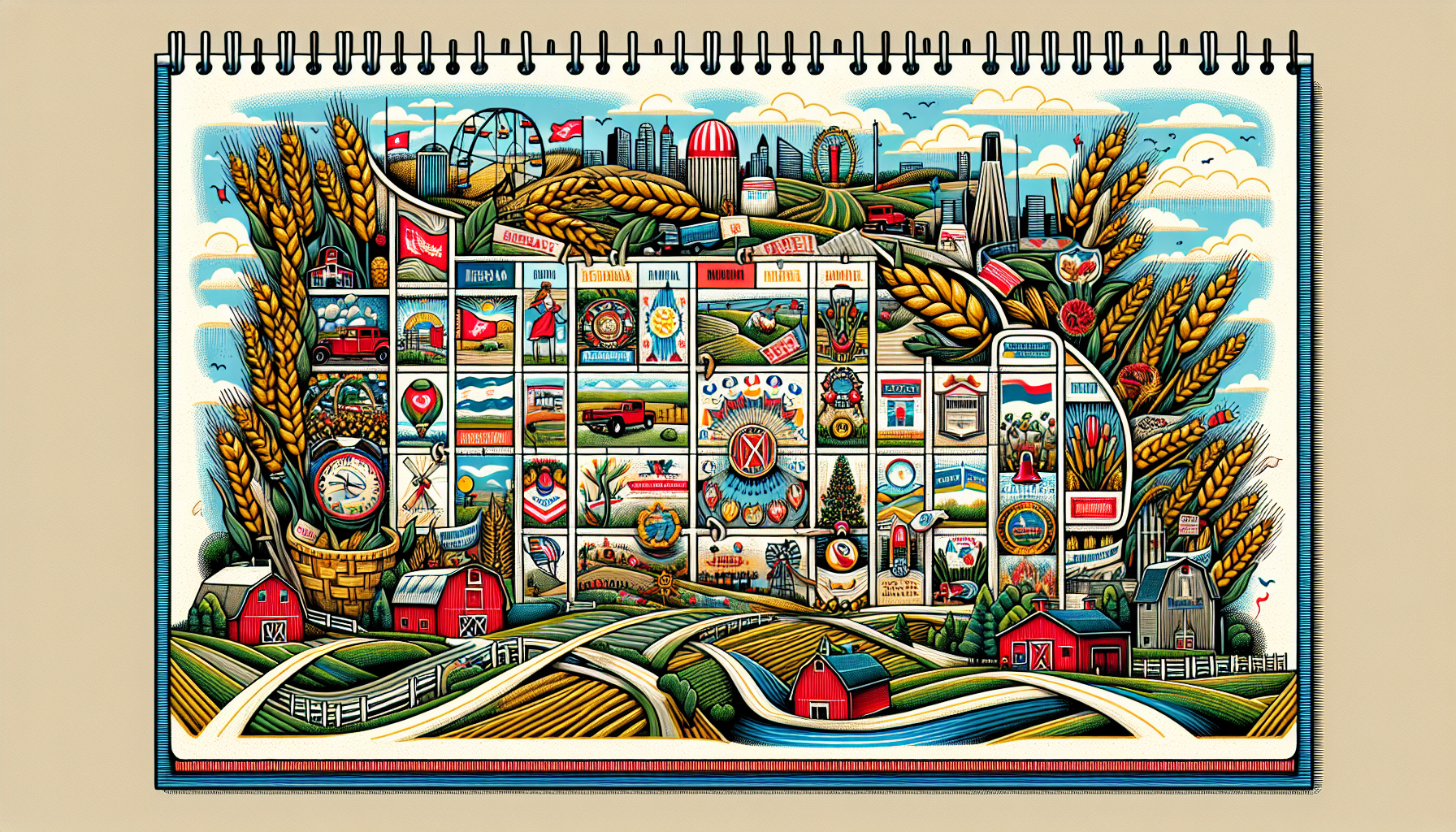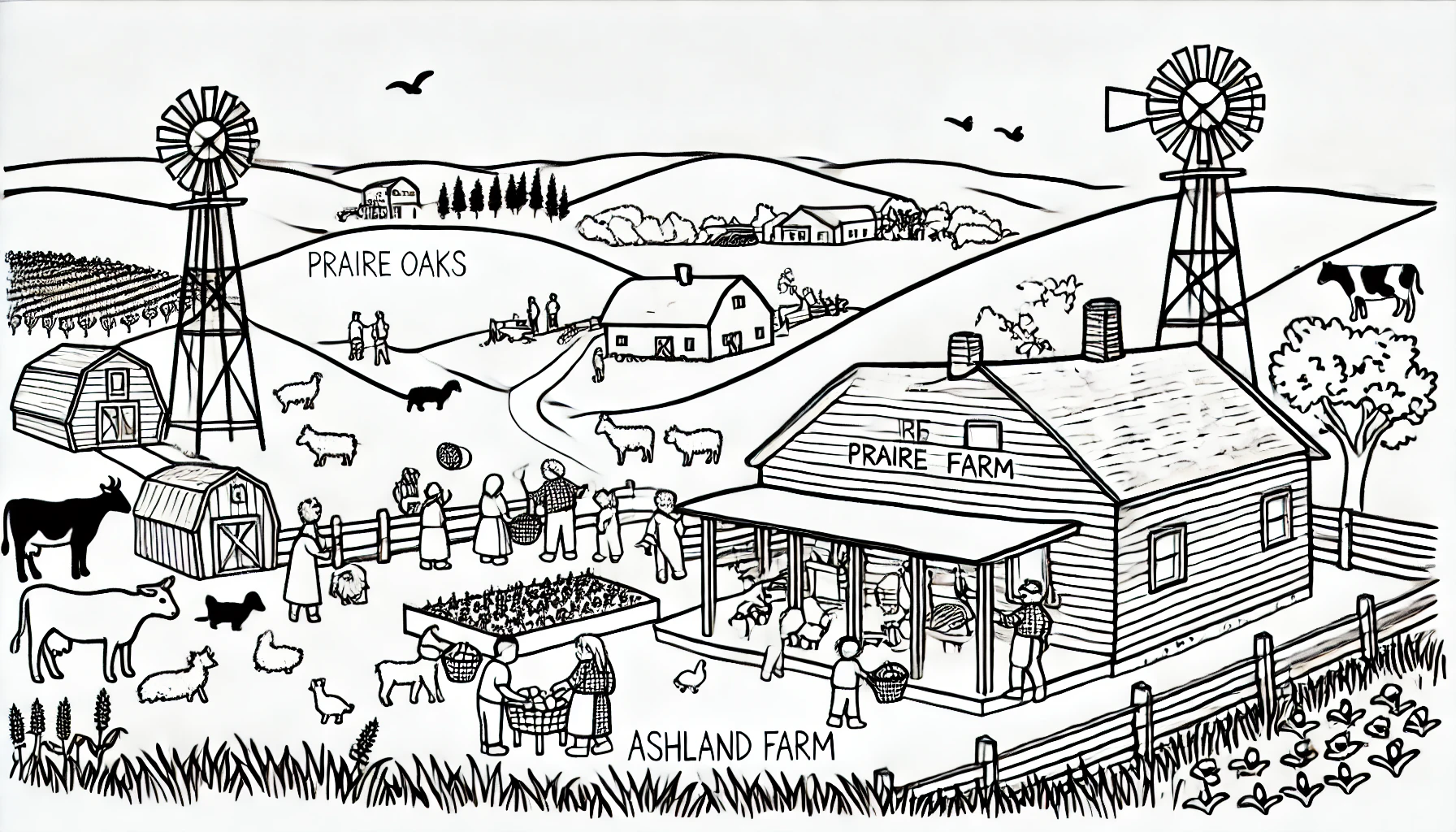Omaha Micro Brew History

Omaha, located in the eastern part of Nebraska, has a rich and diverse history of microbrewing that spans over three decades. The city's microbrew scene has been shaped by its pioneer brewers who introduced unique beer styles to the local market, setting the stage for the thriving industry that exists today. One of the most notable pioneers in Omaha's microbrew history is Paul Kavulak, founder of Nebraska Brewing Company, established in 2007 at 359 South 72nd Street. Nebraska Brewing Company was instrumental in popularizing local microbrews in Omaha, introducing a range of beer styles that captivated the local palate.
Another significant player in Omaha's microbrew history is the Upstream Brewing Company, which was founded in 1996 by Brian Magee, David Maxwell, and Matt Wilkie at 514 South 11th Street. Upstream Brewing Company was a pioneering brewery that brought a new level of sophistication to Omaha's beer scene, earning several awards for its beers at regional and national competitions. Among its award-winning beers is the Firehouse Pale Ale, which won the Silver Medal at the 2002 Great American Beer Festival.
Blatt Beer & Table, located at 6103 Maple Street in Omaha, also played a crucial role in shaping the city's microbrew scene. Established in 2011 by the Flatiron Hospitality Group, Blatt Beer & Table was one of the first restaurants in Omaha to offer a wide selection of local microbrews, featuring beers from around 20 Nebraska brewers. The restaurant's commitment to supporting local breweries helped raise awareness of the diverse range of microbrews available in Omaha.
In recent years, Omaha has seen a proliferation of microbreweries, many of which have garnered critical acclaim. Among these is Infusion Brewing Company, founded in 2013 by Bill Baburek, Andy Hoverson, and Billy Neukam at 6271 South 118th Street. Infusion Brewing Company is known for its innovative beers that incorporate unique flavors, such as the award-winning Vanilla Bean Blonde Ale.
Omaha's microbrew scene has also been shaped by its strong sense of community. Local breweries often collaborate with one another to create limited-edition beers, such as the annual Omaha Beer Week. During this event, local breweries team up to create unique beers that celebrate the diversity and creativity of Omaha's microbrew scene.
Omaha's microbrew history has also been influenced by its proximity to the Great Plains region, with many local breweries drawing inspiration from the region's agricultural heritage. For example, the local brewery Zipline Brewing Company, established in 2012 by Marcus Powers and Clete McLaughlin at 11637 Arbor Street in Lincoln, has developed a range of beers that incorporate regional ingredients, such as Nebraska hops and blueberries.
Furthermore, Omaha's microbrew scene has been impacted by changing regulations and laws regarding brewing and sales. In recent years, the State of Nebraska has relaxed laws regulating microbreweries, allowing local breweries to operate more freely. This shift has led to an increase in the number of microbreweries opening in Omaha and has further fueled the growth of the local microbrew scene.
In conclusion, Omaha's microbrew history has been shaped by its pioneering breweries, innovative beers, strong sense of community, and agricultural heritage. The city's microbrew scene continues to thrive and evolve, offering a diverse range of local microbrews that cater to the evolving tastes of the local palate.
Another significant player in Omaha's microbrew history is the Upstream Brewing Company, which was founded in 1996 by Brian Magee, David Maxwell, and Matt Wilkie at 514 South 11th Street. Upstream Brewing Company was a pioneering brewery that brought a new level of sophistication to Omaha's beer scene, earning several awards for its beers at regional and national competitions. Among its award-winning beers is the Firehouse Pale Ale, which won the Silver Medal at the 2002 Great American Beer Festival.
Blatt Beer & Table, located at 6103 Maple Street in Omaha, also played a crucial role in shaping the city's microbrew scene. Established in 2011 by the Flatiron Hospitality Group, Blatt Beer & Table was one of the first restaurants in Omaha to offer a wide selection of local microbrews, featuring beers from around 20 Nebraska brewers. The restaurant's commitment to supporting local breweries helped raise awareness of the diverse range of microbrews available in Omaha.
In recent years, Omaha has seen a proliferation of microbreweries, many of which have garnered critical acclaim. Among these is Infusion Brewing Company, founded in 2013 by Bill Baburek, Andy Hoverson, and Billy Neukam at 6271 South 118th Street. Infusion Brewing Company is known for its innovative beers that incorporate unique flavors, such as the award-winning Vanilla Bean Blonde Ale.
Omaha's microbrew scene has also been shaped by its strong sense of community. Local breweries often collaborate with one another to create limited-edition beers, such as the annual Omaha Beer Week. During this event, local breweries team up to create unique beers that celebrate the diversity and creativity of Omaha's microbrew scene.
Omaha's microbrew history has also been influenced by its proximity to the Great Plains region, with many local breweries drawing inspiration from the region's agricultural heritage. For example, the local brewery Zipline Brewing Company, established in 2012 by Marcus Powers and Clete McLaughlin at 11637 Arbor Street in Lincoln, has developed a range of beers that incorporate regional ingredients, such as Nebraska hops and blueberries.
Furthermore, Omaha's microbrew scene has been impacted by changing regulations and laws regarding brewing and sales. In recent years, the State of Nebraska has relaxed laws regulating microbreweries, allowing local breweries to operate more freely. This shift has led to an increase in the number of microbreweries opening in Omaha and has further fueled the growth of the local microbrew scene.
In conclusion, Omaha's microbrew history has been shaped by its pioneering breweries, innovative beers, strong sense of community, and agricultural heritage. The city's microbrew scene continues to thrive and evolve, offering a diverse range of local microbrews that cater to the evolving tastes of the local palate.
